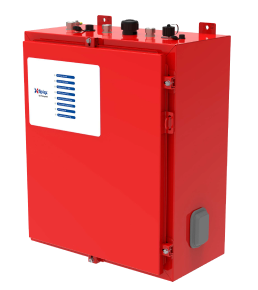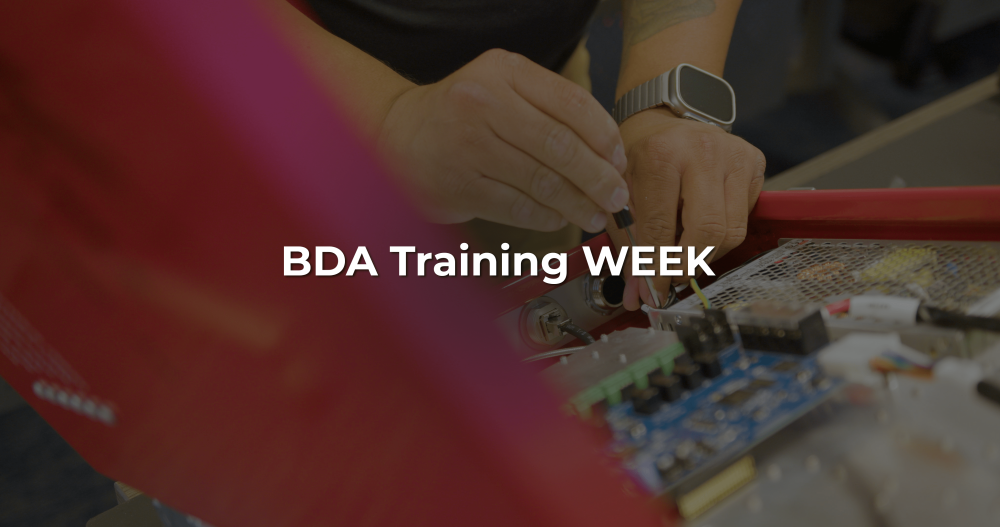January 27 - January 28
In-Building Public
Safety Communications
(IB-PSC) NICET Level 1 & 2 Prep Training
2-Day Hands-On Training on ERCES Installation
Enhance your skills in the installation and commissioning of Emergency Responder Coverage Enhancement Systems (ERCES) with our comprehensive 2-day training. This course is designed to prepare participants for NICET Levels 1 & 2 Certification, a recognized qualification for ERCES installers.
The training covers essential practices for deploying and commissioning ERCES equipment, with a focus on real-world applications. Participants will gain hands-on experience using the necessary test equipment to properly test and commission ERCES systems, aligning with current fire code standards.
Training Content
Day 2
01/27 – 8AM – 5PM
Level 1 candidates for NICET certification in In-Building Public Safety Communications (IB-PSC) apply fundamental radio frequency knowledge to install passive and active equipment per system design and manufacturer specifications, including:
Performing Rough Installation Activities
-Read and follow RF System installation documentation.
-Install Cable (e.g. support, fire stopping, grounding etc.).
-Terminate cable.
-Install passive equipment.
Performing Finish and Trim Out Installation Activities
-Install donor antenna.
-Install active equipment.
-Install dedicated annunciator.
-Install battery backup (BBU).
Participants will receive:
- All ELKINS renown FCC Study Guides, and other classroom materials provided;
- Class Instruction by highly experienced/professional instructor with years of electronics experience;
- Examinations conducted by Official FCC Designated Examiner; additional instruction and re-exams if needed;
- FCC License processing; students receive Proof of Passing Certificates at class end.
Day 2
01/28 – 8AM – 5PM
Level 2 candidates for NICET certification in In Building Public Safety Communications utilize radio frequency principles and equipment to conduct initial surveys, install, commission, and maintain in building public safety communications, including:
Define the project scope
-Review and interpret project specifications.
-Review and interpret project documents.
-Understand and comply with project schedules.
Evaluating RF Signal Strength and Quality
-Measure RF signal strength and quality.
-Troubleshoot issues that impact RF performance.
Perform Rough Installation Activities
-Test cable.
-Validate passive equipment installation.
-Verify electrical and grounding requirements.
Performing Finish and Trim Out Installation Activities
-Validate electrical and grounding installation.
-Interface with fire alarm systems.
Performing Commissioning, Acceptance Test, and Maintenance
-Adjust headend and remote amplification equipment.
-Test system alarms.
-Test battery backup (BBU).
Participants will receive:
- All ELKINS renown FCC Study Guides, and other classroom materials provided;
- Class Instruction by highly experienced/professional instructor with years of electronics experience;
- Examinations conducted by Official FCC Designated Examiner; additional instruction and re-exams if needed;
- FCC License processing; students receive Proof of Passing Certificates at class end.
January 29 - January 30
Westell BDA Level 2 Hands-on Certification
Introduction
“Connecting a Bi-Directional Amplifier (BDA) to AC power and antennas does not guarantee a successful Emergency Responder Communication Enhancement System (ERCES) installation. This class will cover the following topics: International Fire Code (IFC) and National Fire Protection Association (NFPA) codes that jurisdictions may require, Federal Communications Commission (FCC) rules governing BDAs, antenna verification, uplink optimization for signals and noise, the importance of a test transmitter and a spectrum analyzer, alarming, BDA programming, grid testing, and more. The certificate issued will hold more value than just a piece of paper; a hands-on exercise and a written test must be passed to earn this certificate.”


Training Content
Westell is elevating the competencies of the ERCES (Emergency Responder Communication Enhancement System) industry to the next level.
- Adhering to IFC and NFPA codes is essential
- Know how to configure the BDA to follow FCC rules
- Preventing Oscillation
- Familiarity with CW signal generators and spectrum analyzers is mandatory
- Optimizing Uplink to ensure the least amount of interference
- Every antenna must be tested to ensure its performance matches the design
- How to calculate a Link Budget
Westell will provide five ProtectLink CS40 700/800 BDAs for hands-on exercises throughout the first day. Class size will be limited to 20 students.
- AC and DC connections
- Alarming connections
- Alarm configurations
- Optimizing Uplink
- System and RF settings for both wide-band and channelization modes
- Remote Annunciation
- Troubleshooting
- Discuss converting a stand-alone CS40 BDA into a Fiber DAS
Details:
The second day will involve learning how to install and commission Westell’s other BDAs, CS14 and CS45. The instructor will demonstrate this by logging into remotely located units.
The exam will take place after lunch on the second day. Each student must demonstrate connecting to a BDA and configuring it as instructed. The written exam will test the student on essential code and FCC requirements and the operation of Westell BDAs.
What to Bring to Class:
All students must have a Windows computer to connect to the CS40 BDA via a CAT 5 Ethernet cable. The connection requires a Static IP address, which IT departments often disable. Be sure to have the ability to set a Static IP address before attending!
The instructor cannot spend valuable class time troubleshooting computer issues. While not required, a spectrum analyzer would be very beneficial to bring to the class.
Hours:
8:00 a.m. - 4:00 p.m. on both days. Students may leave after completion of the exam on day two.
Meals:
A light breakfast and lunch will be provided on both days.
Certificate:
This certificate will be granted after successfully passing the hands-on exam and achieving a minimum score of 75% on the written exam. Enrolling in the class does not guarantee receiving a certificate; you must earn it.
Participants will receive:
- Manufacturer Certification in ERCES Installation
- Certification Discount on new PCTEL Site Survey Equipment purchase
- Lunch will be provided
Fill in the form below
Register now and don't miss this opportunity

Location
21410 N 15th Lane - Suite #114 - Phoenix, AZ 85027

